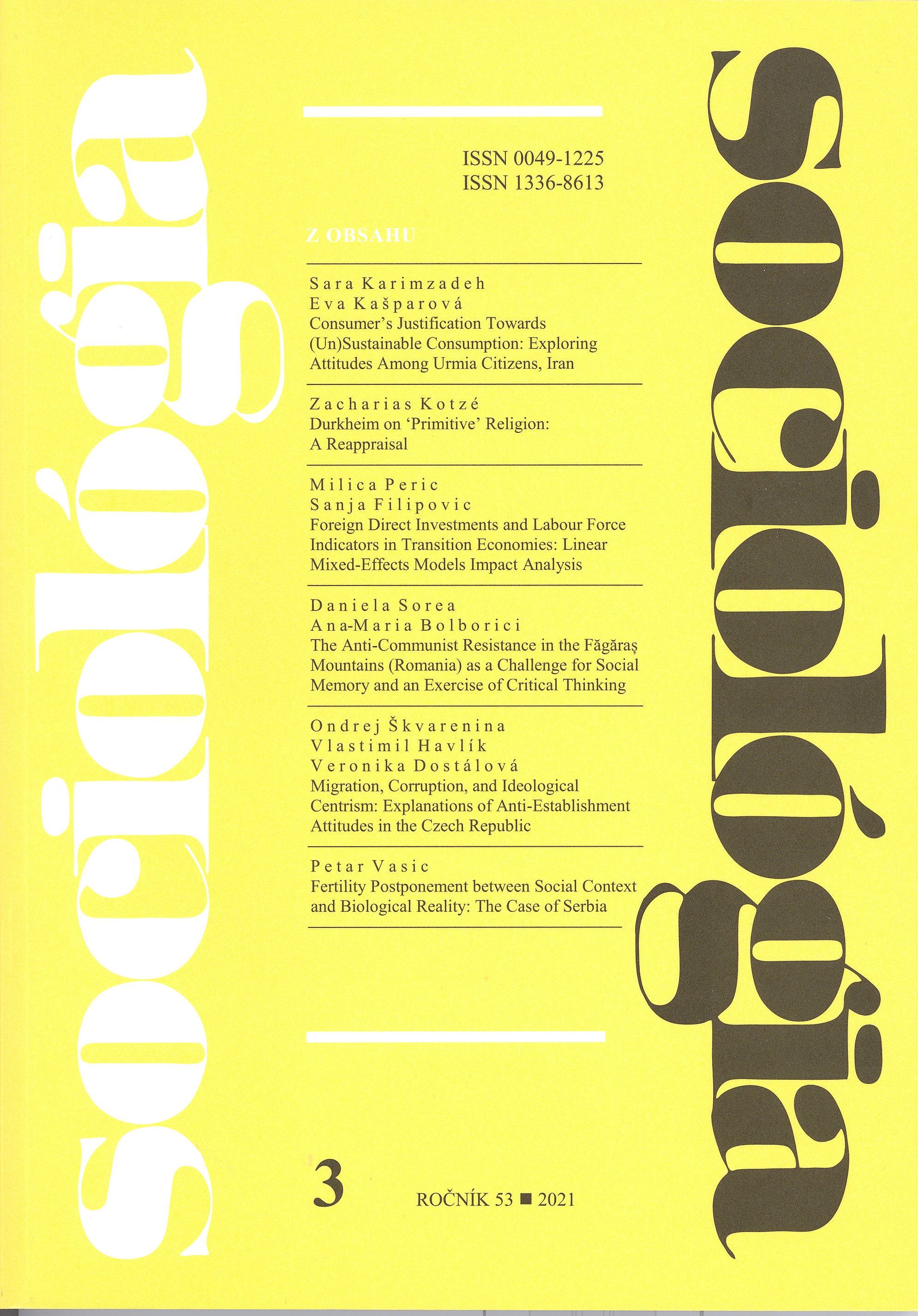Consumer’s Justification Towards (Un)Sustainable Consumption: Exploring Attitudes Among Urmia Citizens, Iran
Consumer’s Justification Towards (Un)Sustainable Consumption: Exploring Attitudes Among Urmia Citizens, Iran
Author(s): Sara Karimzadeh, Eva KasparovaSubject(s): Social Sciences, Sociology, Sociology of the arts, business, education, Economic development, Socio-Economic Research
Published by: Sociologický ústav - Slovenská akadémia vied
Keywords: Reflexive consumption; commodification of relationships; faded trust; deliberate negligence; material self-identification; mental discharge;
Summary/Abstract: Consumer’s Justification Towards (Un)Sustainable Consumption: Exploring Attitudes Among Urmia Citizens, Iran. This study argues that individuals’ consumption patterns should be considered as consequences of the production and reproduction of the public sphere settings that are affected by dominant social, political and cultural structures. Hence, we are aimed to study how a combination of social and individual mechanisms influences (un)sustainable consumption behaviors? The purposive sampling was utilized and data was generated from 20 in-depth semi-structured interviews in Urmia, Iran. Data analyzing revealed 17 subcategories and five main categories including faded trust, deliberate negligence, commoditized human bonding, material self-identification and mental discharge that finally lead to the nuclear category of the study; reflexive consumption. Each main extracted category corresponds to one aspect of consumption. By studying socio-individual reasons for the dominant consumption patterns, this study contributes to obtaining a better understanding of the impacts of social mechanisms in creating (un)sustainable consumption patterns among the target sample.
Journal: Sociológia - Slovak Sociological Review
- Issue Year: 53/2021
- Issue No: 3
- Page Range: 203-224
- Page Count: 22
- Language: English

